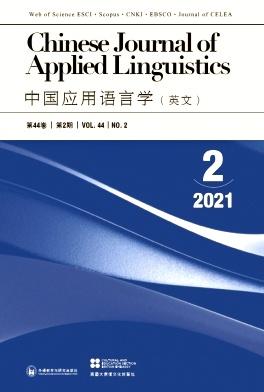在自我调节的翻转课堂中发展 EFL 学习者的关联词知识:混合方法研究
IF 1.1
4区 教育学
Q3 EDUCATION & EDUCATIONAL RESEARCH
引用次数: 0
摘要
本研究比较了翻转教学法和自我调节翻转教学法对英语学习者搭配知识的影响。30名EFL学生被随机分配到两个相同的实验组:翻转式和自律翻转式。在为期六周的时间里,两组学生均接受课外学习内容,并利用课堂时间开展互动活动。然而,自我调节翻转参与者采用了自我调节策略(目标设定和自我评价),帮助他们安排课外时间,在课前有效地学习内容,在课堂活动中与同学和老师进行协作互动。三个搭配视频被发送到他们不同的 WhatsApp 群组。研究人员制作了一个关于形容词+名词和动词+名词搭配的测试作为前测和后测。通过 "学习日志 "收集了观看搭配视频所花费的时间。主体间-主体内混合方差分析的结果显示,将自我调节融入翻转教学法提高了学生的搭配知识;他们的计划策略和学习时间的使用也得到了改善。这项研究对 EFL 教师和教材编写者具有启示意义。本文章由计算机程序翻译,如有差异,请以英文原文为准。
Developing EFL Learners’ Collocational Knowledge in Self-Regulated Flipped Classroom: A Mixed-Methods Study
This study compares flipped approach with self-regulated flipped approach on EFL learners’ collocational knowledge. Thirty available EFL students were randomly assigned to two equal experimental groups: flipped and self-regulated flipped. For six weeks, both groups received learning contents outside of class time, and class time was used for interactive activities. However, self-regulating strategies (goal-setting and self-evaluation) were employed to the self-regulated flipped participants to help them schedule their out-of-class time to effectively work on the content before class to interact collaboratively with their peers and teachers in class activities. Three collocation videos were sent to their different WhatsApp groups. A researcher-made test on Adjective + Noun and Verb + Noun collocations served as the pre- and post-test. The time spent on watching collocations was collected through a ‘study log’. The results of a mixed between-within subjects analysis of variance revealed that integrating self-regulation into flipped approach enhanced the students’ collocational knowledge; their planning strategies and using study time also improved. The study has implications for EFL teachers and material developers.
求助全文
通过发布文献求助,成功后即可免费获取论文全文。
去求助
来源期刊

Chinese Journal of Applied Linguistics
EDUCATION & EDUCATIONAL RESEARCH-
CiteScore
1.50
自引率
0.00%
发文量
377
期刊介绍:
The Chinese Journal of Applied Linguistics (CJAL) (formerly known as Teaching English in China – CELEA Journal) was created in 1978 as a newsletter by the British Council, Beijing. It is the affiliated journal of the China English Language Education Association (founded in 1981 and now the Chinese affiliate of AILA [International Association of Applied Linguistics]). The Chinese Journal of Applied Linguistics is the only English language teaching (ELT) journal in China that is published in English, serving as a window to Chinese reform on ELT for professionals in China and around the world. The journal is internationally focused, fully refereed, and its articles address a wide variety of topics in Chinese applied linguistics which include – but also reach beyond – the topics of language education and second language acquisition.
 求助内容:
求助内容: 应助结果提醒方式:
应助结果提醒方式:


